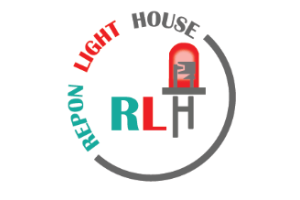An Exploration of the Psychological Factors That Influence Your Wins
The world of casinos and gambling is a complex one, filled with psychological factors that can influence our decisions and outcomes. Whether you’re a seasoned gambler or just starting to explore the world of slots and table games, understanding these psychological elements is crucial for making informed choices.
The Psychology of Decision Making in Gambling
When it comes to gambling, decision-making is key. We make split-second decisions on which game to witchheartmegaways.com play, how much to bet, and when to quit. These decisions are influenced by a multitude of psychological factors, including emotional states, past experiences, and social pressures.
Risk Perception and Gambling Behavior
One of the primary psychological influences on our gambling behavior is risk perception. This refers to the way we perceive and evaluate risks in various situations. When it comes to gambling, some people are naturally more inclined towards taking risks than others. However, this can be influenced by external factors such as winning or losing streaks.
The Gambler’s Fallacy
One common misconception about risk is the gambler’s fallacy. This refers to the idea that past events affect future outcomes. For example, if a slot machine has not paid out in a while, some people believe it is due for a win. However, this could not be further from the truth. Slot machines are designed to pay out randomly and independently of previous spins.
The Role of Emotions in Gambling
Emotions play a significant role in our gambling decisions. We often gamble as a way to cope with stress, anxiety, or other negative emotions. This can lead to impulsive decision-making, where we bet more than we should based on emotional rather than rational considerations.
Emotional Regulation and Self-Control
Developing self-control is essential for making healthy gambling choices. This involves being aware of our emotions and taking steps to manage them. For example, if you’re feeling stressed or anxious, it may be best to take a break from the casino or switch to a different activity.
Cognitive Biases in Gambling
Cognitive biases are systematic errors in thinking that influence our perception, memory, and decision-making. In the context of gambling, cognitive biases can lead us to make suboptimal choices that ultimately cost us money.
The Availability Heuristic
One common bias is the availability heuristic. This refers to the tendency to overestimate the importance or likelihood of information based on how easily it comes to mind. For example, if you’ve had a string of bad luck at the slots recently, this may be all you can think about, leading you to believe that your chances of winning are lower than they actually are.
The Sunk Cost Fallacy
Another bias is the sunk cost fallacy. This occurs when we continue investing in something because of the resources we’ve already committed rather than looking at it objectively. For instance, if you’ve spent $100 on a losing streak and feel like you need to recoup your losses, this can lead to poor decision-making.
The Influence of Social Factors on Gambling Behavior
Social factors also play a significant role in our gambling behavior. This includes the company we keep, the media we consume, and the broader cultural context.
Peer Pressure and Social Norms
Peer pressure is a significant influence on our gambling decisions. We often want to fit in with our social group or avoid being seen as weak by others. For example, if your friends are betting large amounts at a poker table, you may feel pressure to join in even if it doesn’t align with your personal financial goals.
The Media’s Influence
The media also plays a role in shaping our attitudes towards gambling. Movies and TV shows often portray gamblers as successful and glamorous figures, while news coverage of high-stakes betting can create the illusion that these activities are more lucrative than they actually are.
Conclusion
Understanding the psychological factors that influence your wins is crucial for responsible gambling. It involves recognizing the role of emotions in our decisions, being aware of cognitive biases that lead us to make suboptimal choices, and acknowledging the impact of social pressures on our behavior. By taking a step back to evaluate these influences, we can develop healthier attitudes towards gambling and make more informed choices about how much time and money we invest.
Recommendations for Responsible Gamblers
- Set Budgets: Determine how much you’re willing to lose each session or over a specific period.
- Know When to Quit: Establish clear winning and losing limits, and stick to them.
- Seek Support: If you find yourself struggling with gambling addiction or poor decision-making, consider seeking help from professionals or support groups.
- Stay Informed: Continuously educate yourself about the games you play, the odds of winning, and the potential pitfalls of certain strategies.
By following these guidelines and being aware of the psychological factors that influence your wins, you can enjoy your favorite casino games while maintaining a healthy relationship with gambling.
